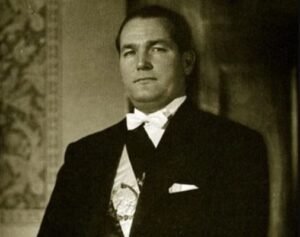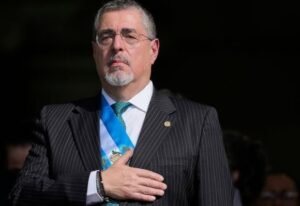This is a list of all Presidents of Guatemala from 1996 till date, Including their terms In office, and political party:
President | Term Start | Term End | Political Party |
|---|---|---|---|
Álvaro Arzú | 14 January 1996 | 14 January 2000 | National Advancement Party / Unionist Party |
Alfonso Portillo | 14 January 2000 | 14 January 2004 | Guatemalan Republican Front |
Óscar Berger | 14 January 2004 | 14 January 2008 | National Solidarity Party / Grand National Alliance |
Álvaro Colom | 14 January 2008 | 14 January 2012 | National Unity of Hope |
Otto Pérez Molina | 14 January 2012 | 3 September 2015 | Patriotic Party / Grand National Alliance |
Alejandro Maldonado (Acting) | 3 September 2015 | 14 January 2016 | Independent |
Jimmy Morales | 14 January 2016 | 14 January 2020 | National Convergence Front |
Alejandro Giammattei | 14 January 2020 | 14 January 2024 | Vamos |
Bernardo Arévalo | 15 January 2024 | Incumbent | Semilla |
READ ALSO: List Of All Presidents Of Austria (1920-Present)
Who Was The First Elected President Of Guatemala?

Juan José Arévalo was the first democratically elected president of Guatemala, who served as president from 1945 to 1951. His election came after a popular uprising against the dictator Jorge Ubico, who was supported by the United States.
This uprising started what is known as the Guatemalan Revolution. However, Arévalo was an educator and philosopher. As president, he wanted to help the people of Guatemala and make the country better.
He encouraged the labor movement and introduced many important social reforms. During his time as president, a social security system was set up, and a labor code was created. He also started important programs in education, health, and infrastructure.
Arévalo allowed freedom of speech and press, which were new ideas at the time. He also reopened the dispute over Belize with the British as part of his nationalist policies. Arévalo described his political ideas as “spiritual socialism.”
This philosophy aimed to give more power to the average Guatemalan and support democratic principles. In 1947, he passed a Labor Code that gave workers the right to form unions, bargain collectively, and be protected from being fired without a good reason.
These changes were very different from the old, harsh ways under Ubico. Regardless, Arévalo’s time as president was not easy. He faced 25 attempts to overthrow him from conservative and military groups who did not like his policies.
Even some people on the left thought he should have made more radical changes to reduce the power of the wealthy landowners. His policies, along with those of his successor, Jacobo Árbenz, threatened U.S. business interests.
This led to the CIA orchestrating a coup in 1954, which ended the revolution and brought Guatemala into a long period of authoritarian rule and civil conflict. Despite these challenges, Arévalo’s presidency was the first truly free election in Guatemala’s history.
His time as president laid the foundation for Guatemalan democracy and inspired the country’s hopes for a fairer, more inclusive society. The period from 1944 to 1954 is often called the “Ten Years of Spring” and is still remembered in Guatemala today.
READ ALSO: List Of All Prime Ministers Of New Zealand (1856-Present)
Who Is The Current President Of Guatemala?

Bernardo Arévalo is the current president of Guatemala, who became president on January 15, 2024. He is part of a political party called the Movimiento Semilla, which means Seed Movement. Bernardo Arévalo was born in Uruguay in 1958.
His father, Juan José Arévalo, was Guatemala’s first democratically elected president from 1945 to 1951. Juan José Arévalo made many changes to help workers and Indigenous people. However, in 1954, a CIA-backed coup forced his family to leave Guatemala.
Bernardo returned to Guatemala as a teenager. He studied sociology and anthropology in Israel and the Netherlands. Also, he worked as Guatemala’s ambassador to Spain and with an NGO called Interpeace, focusing on peace in Central America.
In August 2023, Bernardo Arévalo won the presidential election. This was a surprise because he was not a favorite in the polls. Many people in Guatemala were tired of corruption and bad management.
Even though he won by a large margin, there were many attempts to discredit him and his party. His inauguration was delayed because of protests and political negotiations, but he finally took office with a lot of public support.
As president, the Arévalo party only has 23 out of 160 seats in Congress, making it hard to pass new laws. The attorney general, María Consuelo Porras, has been accused of working against democracy and targeting Arévalo and his party with investigations.
Arévalo has asked for public support to fight corruption and bring change to the country. Arévalo plans to tackle big issues in Guatemala, such as poverty, corruption, and climate change.
He wants to improve access to healthcare and education. Also, he aims to restore the integrity of the judicial system, which has suffered from political interference.

